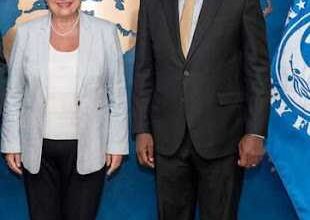
By Patrick Baah Abankwa
Imagine walking on a tightrope. You need balance – too far to one side and you fall. That’s the situation Ghanaian banks are in today when it comes to lending money. Recently, the Governor of the Bank of Ghana (BoG), Dr. Johnson Pandit Asiama, met with bank executives with one key message: We need a smarter, more balanced approach to credit.
But what exactly does that mean—and why is it so important for Ghana right now?
The Problem: Balancing Risk and Growth

Banks are in a tough spot. They want to lend money to businesses so they can grow and support the economy. But if they lend too carelessly, they risk being flooded with Non-Performing Loans (NPLs)—loans that borrowers can’t pay back.
Dr. Asiama urged banks to rethink how they lend, ensuring loans go to businesses that can actually repay them and create jobs, especially in sectors like agriculture, manufacturing, and SMEs (small and medium enterprises).
What Is a “Balanced Credit Strategy”?
A balanced credit strategy means making wise, well-informed lending decisions. It involves:
Diversifying: Lending to different industries to spread out risk.
Proper screening: Having strict rules on who qualifies for a loan.
Monitoring loans: Keeping a close eye on repayment progress.
Preparing for losses: Setting aside money in case some loans go bad.
This ensures banks are neither too cautious (which can starve the economy) nor too risky (which can cause financial instability).
Lessons from Around the World
Countries like Canada, Singapore, and Germany show that balanced lending works:
Canada avoided the 2008 housing crash by being careful with mortgage lending. Singapore enforces strong risk management, which keeps their NPLs low. Germany’s mix of private, public, and cooperative banks supports small businesses while staying cautious.
These examples offer Ghana practical insights for smarter banking policies.
Why Ghana Needs This Now More Than Ever
1. Reducing Bad Loans
A mountain of unpaid loans can cripple banks. A balanced approach helps avoid this, keeping banks healthy and ready to lend.
2. Fueling Real Economic Growth
Smart lending to key sectors helps build industries, create jobs, and boost income.
3. Maintaining Financial Stability
The banking sector clean-up we experienced in recent years showed what happens when things go wrong. Smarter lending protects the system.
What Banks Can Do:
- Key Focus Areas
- Smarter Risk Management: Use data analytics to assess loan risk.
- Understand industry risks, avoiding overexposure to volatile sectors like real estate.
- Better Loan Assessments: Ensure loans are backed by strong collateral.
- Check cash flow, not just assets, to assess repayment ability.
- Early Warning Systems: Leverage AI and machine learning to detect red flags early.
- Review loan performance regularly to prevent surprises.
- Prepare for Losses: Save during profitable periods to cushion future losses.
- Follow global accounting standards like IFRS 9 for transparency and planning.
What to Watch Out For
While a balanced approach is important, banks should avoid:
Over-regulating: Too many rules can block even good businesses from getting loans.
Ignoring global risks: Exchange rate shifts and world events can still affect performance.
Political pressure: Lending to politically connected projects without proper checks can backfire.
Final Thoughts: The Path to Ghana’s Financial Future
Dr. Asiama’s push for balanced lending is about more than just protecting banks—it’s about fueling Ghana’s long-term growth. By improving how loans are managed, reducing bad debt, and directing credit to where it matters most, we can build a stronger, more stable financial system.
If banks get this right—with support from the Bank of Ghana—we’ll move closer to that sweet spot where risk leads to real rewards, not regrets. The future of Ghana’s economy could very well depend on how wisely our banks choose to lend today.
About the Author
Patrick Baah Abankwa is a Chartered Banker and Chartered Global Investment Analyst with over nine years of experience in banking. He currently serves as Head of Member Experience and Growth at the Chartered Institute of Bankers, Ghana. Patrick holds an EMBA and BA from KNUST and the University of Ghana, respectively.
Follow Patrick:
Facebook: PatrickTVGh
Instagram:@PatrickTVGH
Also Read: Building a Culture of Excellent Customer Service – A Saleswoman’s Perspective



